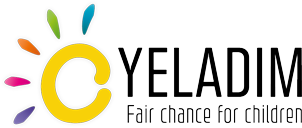Project Description
The Young Adult Program
Each year, 300 children at the age of 18 who have no family backing and have been in the care of The Welfare Ministry for most of their lives, graduate from Residential care Institution and leave the only place they‘ve ever called home. They are essentially left to become homeless and face the outside world entirely by themselves, without a network of support.
The Bridge to Independence program, operated by Yeladim since 2006, provides these young adults with an easier transition into the world; giving them the time, support, and guidance they need to become independent and self-sufficient. Bridge to Independence is a large-scale program created to provide housing, support and counseling to homeless graduates of group homes or foster care. Yeladim provides them with support and guidance in all aspects of their lives, until they turn 24, and are able to function as independent, responsible, productive adults.
Project Description
The program includes 350 youngsters, 150 of whom live in 25 apartments of the program around the country. 200 youngsters live in independent housing in the community, and are supported by the program.
The ‘Bridge to Independence’ apartments are spread countrywide: Afula, Kiryat Bialik, Jerusalem, Hod HaSharon, Givat Shmuel, Hadera, Holon, Rishon LeZion, Modi’in, Netanya, Beer Sheva, Petah Tikva, Givatayim, Kfar Saba, Bnei Brak, and Majd al-Krum. Currently there are 32 apartments in the program, each housing 6-8 youngsters who pay a subsidized rent, lead an independent lifestyle, and are supported by the program staff.
Most apartments are located in city centers close to public transport. Each apartment is supported by a staff member working a one-third position, who is responsible for how the apartment is managed, maintaining the rules of conduct, maintenance, and cleaning. The staff member is also responsible for building a personal program in cooperation with the youngsters.
The program includes: components of integration into employment, financial conduct, emotional therapy, completion of studies, preparation for the psychometric examination, vocational training, academia, family, cultivating personal skills, empowerment, and optimal integration into military or national service. The duration of stay in the apartments is limited to a period of up to four-and-a-half years for boys and three-and-a-half years for girls, including the period of military or national service.
At the end of that time, the youngsters are expected to stand on their own two feet and move into independent housing, while the program staff continue to provide them with support. Accompaniment for some 200 youngsters who live in the community. Some of these have exhausted their right to reside in the program. Some live in rental apartments, some live in the Soldiers’ Homes or in student dormitories. The accompaniment the youngsters living in the community receive is adapted to their needs, and each one has a personal plan created for them. Most of the youngsters living in the community have completed the period of their service and need guidance on their way to academic or vocational studies, high school completion, financial management, and a bridge to independent living.
Project Impact
Youngsters with no family backing usually come from homes with no employment model; their exposure to a variety of occupations and professions is limited, their social network is poor and not necessarily beneficial. They generally have low self-image and an inferior sense of their ability to integrate into the mainstream of Israeli society.
As a result of the development of the education system in the program, adjustment is required in the field of employment. The youngsters – many of whom suffer from ADHD, learning disabilities, and/or with low self-esteem – encounter difficulties in job interviews, evaluation centers, and reliability tests. The program mobilizes ‘friendly’ employers who are willing to see beyond these difficulties and provide youngsters with an equal opportunity, developing cooperation with ‘business mentor’ associations, providing workshops for preparing CVs, and so on.
The program also includes identifying employment needs among the youngsters, guidance, counseling and developing work skills, placement in high-quality employment, training of the staff on the subject of employment and career, creating follow-up control processes, and ongoing counseling for youngsters who have completed vocational training or academic studies.
During the recent years, knowledge and experience has been accumulated among program operators and the team of supporters. The program was one of the pioneers in building means of intervention for youngsters and in addressing all aspects of life for the young adults: interpersonal relationships and future programs, education, military service, and scholastics.
The work method developed includes elements of intervention during transitional stages; encouraging independence on the one hand, while providing a support network on the other; a gradual process of taking responsibility, providing a safety net, and building a positive plan for the future.
The Bridge to Independence program has amassed a great deal of professional knowledge in working with these youngsters, in personal counseling, taking advantage of rights, motivation for action, and familiarity with the central players operating in this arena. The program’s staff members participate in forums on the subject of youth, round tables, a forum for youngsters at risk, a forum for young women at risk, a forum dealing with youth villages, a variety of different committees and more.
Publications and Researches
Hadas Lotan, Tehila Refaeli and Talia M. Schwarts-Tayri (2020): Young adults at risk during Covid-19 outbreak in Israel. Yeladim- Fair Chance for Children and Intrac Israel
Talia M. Schwarts-tayri and Shimon E. Spiro (2017): The other side of the bridge: A follow up study of Israeli young adults who participated in a transitional housing program after graduating from care. Residential Treatment for children and Youth, 34/3-4, 311-324.

